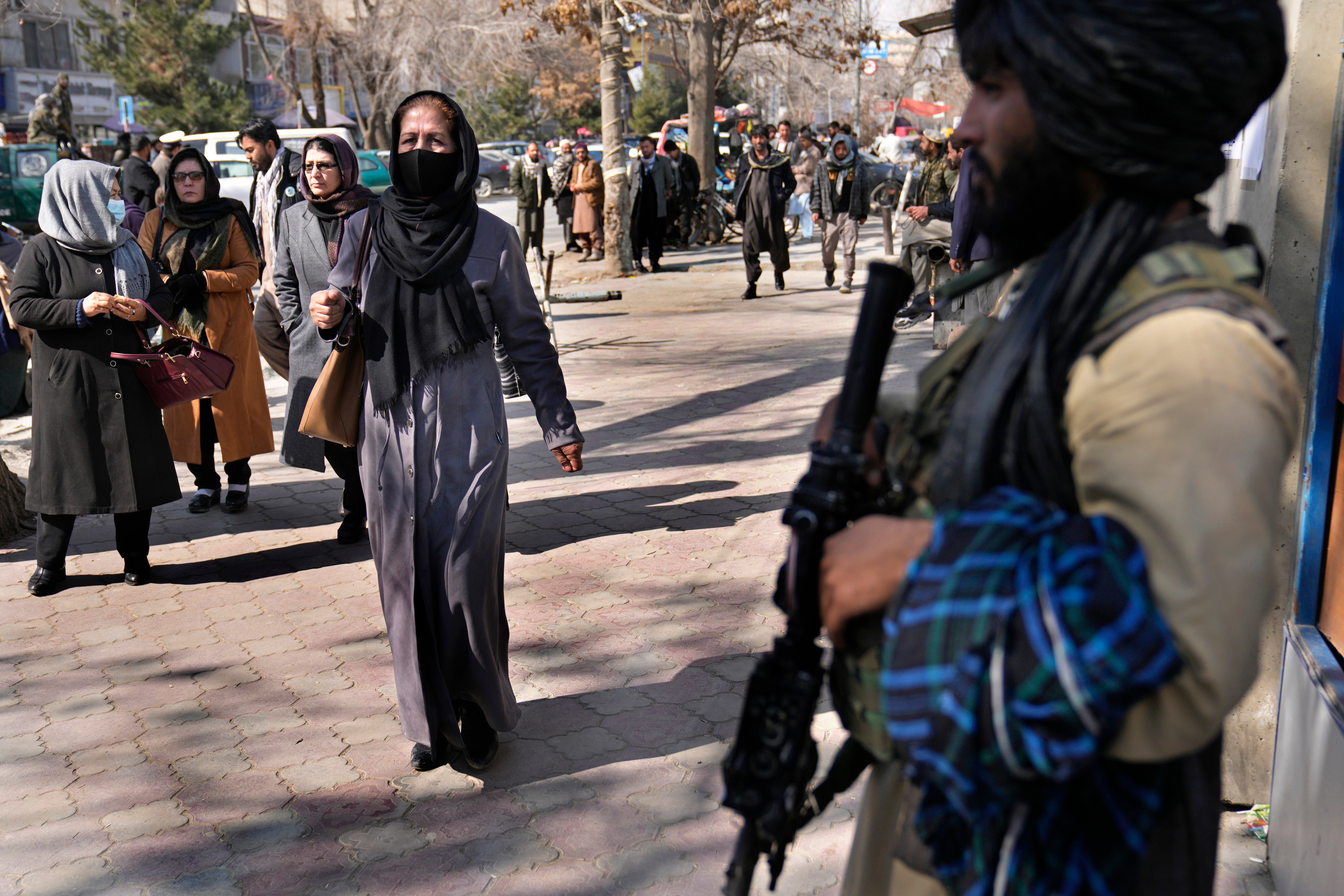Afghanistan: Expert panel to explore The Taliban’s war on women
Sign up for your free ticket to The Independent’s online event

Your support helps us to tell the story
From reproductive rights to climate change to Big Tech, The Independent is on the ground when the story is developing. Whether it's investigating the financials of Elon Musk's pro-Trump PAC or producing our latest documentary, 'The A Word', which shines a light on the American women fighting for reproductive rights, we know how important it is to parse out the facts from the messaging.
At such a critical moment in US history, we need reporters on the ground. Your donation allows us to keep sending journalists to speak to both sides of the story.
The Independent is trusted by Americans across the entire political spectrum. And unlike many other quality news outlets, we choose not to lock Americans out of our reporting and analysis with paywalls. We believe quality journalism should be available to everyone, paid for by those who can afford it.
Your support makes all the difference.Since the Taliban took over Afghanistan a year ago, it has scaled up its assault on the rights of women.
As the hardline Islamist group swept to power in the summer of 2021, many women fled for fear of being oppressed, arrest, violence or even worse. The last time they had ruled the country between 1996 and 2001, women were barred from working, girls were blocked from going to school, and women had to be chaperoned by a male relative if they wanted to leave the house.
Get your free ticket via our Eventbrite page
Since it took over last year, the Taliban has tightened restrictions on women - from stopping girls’ education beyond primary school age in March 2022 to its shocking decree in May that all women must wear an all-covering burqa in public that veils their faces. The decree added that women should remain home whenever possible. Many laws have been introduced that segregate men and women including in restaurants and in parks.
Women have also been barred from all sports and the Taliban has stopped issuing driving licences to women in Kabul and other provinces. The list goes on.
Those working in roles - such as judges, politicians, journalists, and campaigners who didn’t manage to escape Afghanistan, have been forced into hiding. Many have been unable to access vital medical care. The Taliban has freed thousands of prisoners, including terrorists and senior al Qaeda operatives, putting the lives of female judges at risk.
So, how can the Taliban be held to account and what is the future of women’s rights in Afghanistan? What’s the latest on the UK’s Afghan Citizens Resettlement Scheme (ACRS)?
Join host Maya Oppenheim, The Independent’s women’s correspondent, and a panel of experts to explore these questions and more at a virtual event held on Zoom on Wednesday 31 August at 6.30pm.
The event is free to attend and will last one hour. Attendees will be able to pre-submit questions to the panel as well as submit questions during the event.
For more information and to register for a ticket, visit our Eventbrite page.
Join our commenting forum
Join thought-provoking conversations, follow other Independent readers and see their replies
Comments